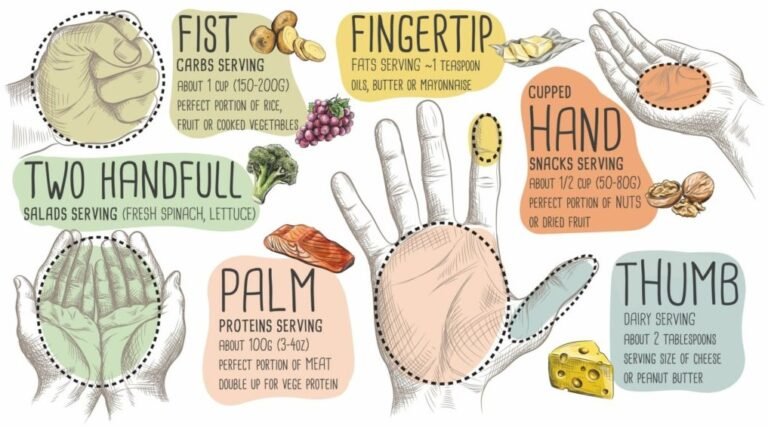Maintaining optimal health is a journey that begins with what we put on our plates. Many individuals find themselves overwhelmed by conflicting information in the world of nutrition, leading to confusion about what truly constitutes a healthy diet. However, focusing on balanced and nutritious food choices can significantly enhance physical well-being and overall quality of life. This article shares essential Nutrition Tips to guide you on the path to better health, enabling you to make informed decisions about your diet.
Understanding the Basics of Nutrition
Before diving into specific Nutrition Tips, it’s important to understand the foundational components of nutrition. Nutrients, the substances your body needs to function properly, can be categorized into macronutrients (carbohydrates, proteins, and fats) and micronutrients (vitamins and minerals). Each of these plays a vital role in your body’s overall functioning. Carbohydrates serve as your body’s primary energy source, proteins are essential for muscle repair and growth, and healthy fats support brain function and cell structure.
Micronutrients, although needed in smaller amounts, are equally crucial. Vitamins like A, C, D, E, and B-complex, as well as minerals such as calcium and iron, are essential for various bodily functions, from immune response to bone health.
Prioritizing Whole Foods
One of the best Nutrition Tips is to prioritize whole foods over processed options. Whole foods include fruits, vegetables, whole grains, nuts, seeds, and lean proteins. These foods are rich in essential nutrients and free from the additives and preservatives found in many processed items. Incorporating a variety of colorful fruits and vegetables into your meals not only adds visual appeal but ensures you’re receiving a broad spectrum of nutrients.
Tips for Incorporating More Whole Foods:
- Meal Planning: Dedicate some time each week to plan your meals around whole ingredients. This can make it easier to resist the temptation of reaching for convenient processed foods.
- Healthy Snacking: Keep whole food snacks on hand, such as fruit, yogurt, or mixed nuts, to make healthy choices readily available throughout the day.
Emphasizing Balanced Meals
Creating balanced meals that contain a combination of macronutrients is key. Each meal should ideally include a source of protein, healthy fats, and complex carbohydrates. For example, a balanced meal could consist of grilled chicken (protein), quinoa (carbohydrate), and avocado (healthy fat).
Why Balance Matters:
- Balanced meals help prevent spikes in blood sugar levels, keeping energy levels stable throughout the day.
- They support sustained satiety, reducing the likelihood of unhealthy snacking between meals.
Hydration: The Often Overlooked Component
Many tend to overlook the importance of hydration in their nutrition plan. Drinking adequate amounts of water is vital for digestion, nutrient absorption, and maintaining body temperature. It is recommended to drink at least eight 8-ounce glasses of water daily, but individual needs can vary depending on factors such as activity level and climate.
Hydration Tips:
- Carry a Water Bottle: Keeping a water bottle with you throughout the day is an effective reminder to stay hydrated.
- Infuse Your Water: If plain water seems dull, consider infusing it with fruits, herbs, or cucumber slices for added flavor.
The Power of Meal Timing
While what you eat is important, when you eat can also influence your health. Many people benefit from eating smaller, more frequent meals throughout the day rather than three large ones. This approach can help maintain energy levels and improve metabolic health.
Considerations for Meal Timing:
- Listen to Your Body: Pay attention to your hunger cues and eat when you’re hungry, rather than adhering to a rigid schedule.
- Avoid Late-Night Eating: Consuming heavy meals late at night can disrupt sleep patterns. Aim to finish eating at least a few hours before bedtime.
Mindful Eating Practices
Adopting mindful eating practices can significantly enhance your relationship with food. This involves being present during meals, savoring each bite, and recognizing hunger and fullness cues. Mindful eating can lead to improved digestion and greater satisfaction with meals.
Mindfulness Tips:
- Limit Distractions: Try to avoid screens or other distractions during meals to focus entirely on your food.
- Chew Thoroughly: Take the time to chew your food well, as this aids in digestion and encourages a slower eating pace.
Conclusion
Incorporating these essential Nutrition Tips into your daily routine can set the foundation for optimal health. By focusing on whole foods, balancing meals, staying hydrated, timing your meals wisely, and practicing mindfulness, you can transform your relationship with food and promote overall well-being. Remember, every small change contributes to a larger goal of health and vitality, making the journey rewarding and impactful. Embrace these strategies, and nourish your body with the care it deserves!

